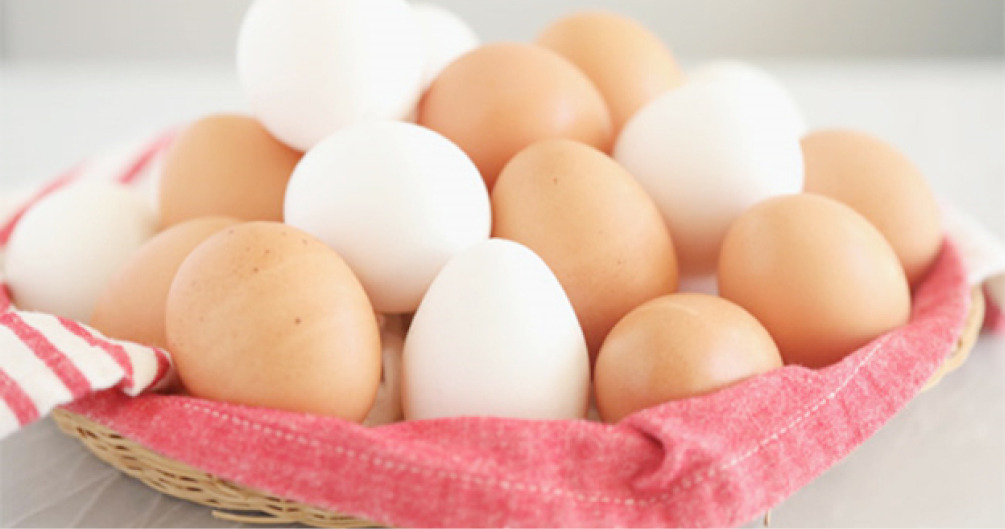Consumers are likely to see a sudden spike in the prices of egg in the coming weeks as most farms across the country are already witnessing low production. This situation will further reduce egg consumption in Nigeria.
Statistics from the Food and Agriculture Organisation (FAO) of the United Nations shows that Nigeria has the second largest chicken population in Africa, after South Africa, producing 650,000 tonnes of eggs per annum.
- What bandits commanders told me in Zamfara forests Sheikh Gumi
- Top bandits commander, Buharin Daji, to lay down arms soon Matawalle
According to Dr Onallo Akpa, the director-general, Poultry Association of Nigeria, the economy of eggs in Nigeria is enormous as an egg a day for 50 per cent of the Nigerian population will produce an economic value of N1.7billion. Annual revenue from egg sales will be N340b. If per capita consumption of egg increases to 100 per person per year, then annual revenue would be N680b.
However, that may not happen anytime soon as prices may further deter consumers in the country, who are already not consuming enough eggs.
Mr Chikaodili Okeke, the executive director, Feed Africa Advocacy Network, while writing ‘A Personal Observation of the Egg Glut’ in the Nigerian poultry market, stated, “Nigerians, on the average, consume less than 80 eggs per person annually while countries like China, Mexico and the United States consume an estimated 300 eggs per person annually, and in South Africa, an average of 180 eggs per person.”
He added that Nigeria is on the lower ebb as far as egg demand and consumption is concerned, adding, “Nigerians consume less egg than most developed countries, simply as a result of the very low purchasing power of the average Nigerian family. Nigerians, in fact, love to eat eggs. Parents would love to have their children eat as much egg as is healthy. However, the economic situation of majority of households means that egg as a sustained part of diet, especially for children and consuming adult is a luxury.”
The poultry industry is currently going through the eye of the needle to survive input cost, and most farms were forced to shut down because of the high cost of feed, hinged on the apparent soaring cost of inputs across the value chain.
On January last year, a consumer could buy three eggs at N100, with a crate selling between N650 and N850. At the moment, the price of egg is skyrocketing, selling at N60 per egg while a crate sales between N1,200 and N1,300 in parts of Nasarawa, Niger and the Federal Capital Territory.
The problem is further compounded by scarcity of eggs induced by the fact that many farmers across the country have shut down.
An egg distributor, Mr Demola Adekunle, whose shop was located in Mechanic Village in Jakande Estate, Oke-Afa in Lagos, expressed concern over the scarcity of eggs in the last few weeks.
According to him, there are two farms where he purchases an average of 350 crates of eggs every week, but none of them has been giving eggs anymore. He told our correspondent that one of the farms no longer functions due to feed challenges, while the other farm has not given a date yet.
He complained that he had been losing customers due to the scarcity of eggs, as most of the time he would end up telling his customers that he had no eggs to sell, and this has been affecting his source of income.
Another egg supplier, Mrs Bridget Stephen, said although there was scarcity, she was able to procure eggs at a higher price. Eggs, which hitherto sold at N950 some months ago, have been increased to N1,300 per crate.
Justifying the scarcity of eggs, a Lagos-based poultry farmer, Folake Aina, explained that the annual scarcity of eggs occurred as many farmers sold their chickens in December and it would take three to four months before the replaced new chickens can lay eggs.
She further said the scarcity of eggs was due to the farmers’ inability to purchase new chicks as they would not be able to feed them.
She lamented that almost every week, prices of feed increase. She was of the view that despite the opening of borders, prices of major ingredient for feeds have not reduced. She said a lot of additives used were imported from the United Kingdom, Germany, Netherlands or China, adding that with the exchange rate, the additives end up at a higher price for farmers. Wheat offals, which could be gotten locally, have also become expensive.
Folake Aina, the chief executive officer of VD & T Farm in Epe, predicted that the current egg scarcity and increase in price would continue till March/April when new birds would have started laying.
This, she noted, was due to the farmers’ inability to stock new chicks until the old ones are sold. Birds usually take about 20 weeks before they can lay eggs, she said.

 Join Daily Trust WhatsApp Community For Quick Access To News and Happenings Around You.
Join Daily Trust WhatsApp Community For Quick Access To News and Happenings Around You.


